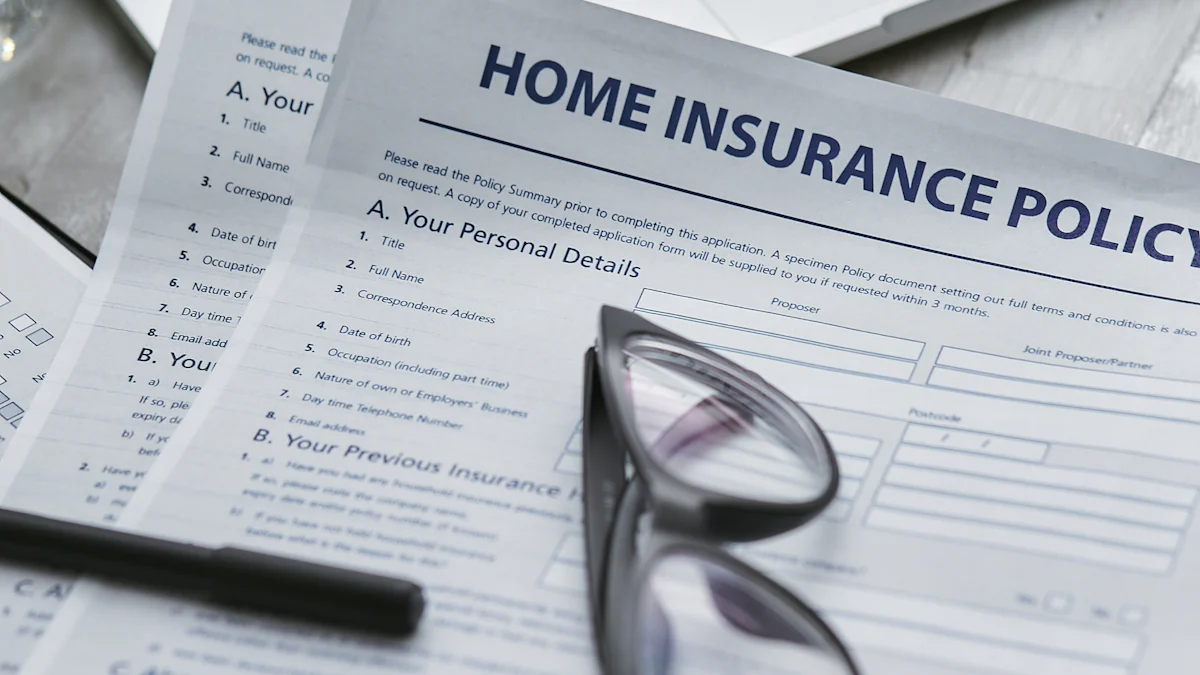Insurance shields your business from financial risks, legal liabilities, and unexpected events. Without it, you risk significant losses. For instance, 29% of small businesses operate without insurance, leaving them vulnerable. Common risks include cyber incidents, natural disasters, and business interruptions. Coverage ensures stability, protects assets, and helps you recover from unforeseen challenges.
Key Takeaways
- Insurance keeps your business safe from money problems and surprises. It helps you focus on growing without fear of big costs.
- Having proper insurance is often a legal rule. It stops fines and keeps your business running smoothly.
- Check your insurance often to match changes in your business. This makes sure you are protected from certain risks.
Why Insurance Matters for Small Businesses
Protecting Against Financial Risks
Insurance acts as a safety net for your business when unexpected events occur. It provides financial protection against losses caused by lawsuits, accidents, or natural disasters. For example:
- It helps you recover from costly lawsuits that could otherwise drain your resources.
- It covers property damage from events like fires or floods.
- It ensures your business remains profitable during challenging times.
By transferring financial risks to an insurer, you can focus on running your business without worrying about sudden expenses. Paying premiums allows you to share potential costs with the insurer, who handles the financial impact of covered events. This protection is essential for small businesses, as it safeguards your operations and helps you recover quickly from setbacks.
Complying with Legal Requirements
Carrying the right insurance isn’t just smart—it’s often required by law. Many states mandate specific coverage, such as workers’ compensation insurance, to protect employees. Failing to comply can lead to severe penalties. For instance:
| State | Penalty Description | Penalty Amount |
|---|---|---|
| New Jersey | Criminal offense for not carrying coverage | Fine of $10,000 or imprisonment for up to 18 months |
| California | Similar penalties for non-compliance | Fines up to $100,000 |
| Illinois | Misdemeanor for failure to carry insurance; felony for willful non-compliance | Misdemeanor or felony charges |
| Pennsylvania | Felony of the third degree for intentional noncompliance | Fine of $15,000 and up to 7 years in jail |
Meeting these requirements not only avoids legal trouble but also ensures your business operates smoothly.
Building Trust with Employees and Customers
Insurance demonstrates your commitment to protecting everyone involved in your business. Employees feel secure knowing they’re covered in case of workplace injuries. Customers trust businesses that prioritize safety and reliability. You can build this trust by:
- Showcasing positive testimonials and reviews on your website.
- Keeping promises and delivering on commitments.
- Encouraging feedback to show you value customer input.
When you invest in insurance, you create a foundation of trust that strengthens relationships with employees and customers alike.
Key Types of Insurance for Small Businesses
General Liability Insurance
General liability insurance protects your business from third-party risks. It covers claims related to bodily injuries, property damage, and even reputational harm. For example, if a customer slips and falls on your premises, this policy can cover medical expenses and legal fees. Common claims include customer property damage, slander, and product liability. This type of insurance is essential for businesses that interact with customers or clients regularly.
Property Insurance
Property insurance safeguards your physical assets, such as buildings, equipment, and inventory. It provides coverage for damages caused by events like fires, theft, or natural disasters. If your business experiences a fire, property insurance can help you repair or replace damaged items, ensuring minimal disruption to your operations.
Workers’ Compensation Insurance
Workers’ compensation insurance is often required by law. It covers medical expenses and lost wages for employees injured on the job. Without this coverage, you risk paying out-of-pocket for workplace injuries, which can lead to financial strain. Non-compliance with workers’ compensation laws can also result in hefty fines or legal penalties.
Professional Liability Insurance
Professional liability insurance, also known as errors and omissions (E&O) insurance, protects you from claims of negligence or substandard work. Unlike general liability insurance, which focuses on physical injuries, this policy addresses financial losses caused by mistakes or oversights in your services.
Business Interruption Insurance
Business interruption insurance helps you recover lost income if your operations are disrupted by disasters. It covers expenses like rent, payroll, and utilities during the downtime. Without this coverage, small businesses may face bankruptcy or financial ruin after unexpected events.
Cyber Liability Insurance
Cyber liability insurance protects your business from the financial fallout of data breaches and cyberattacks. It covers costs for notifying affected individuals, hiring public relations firms, and offering credit monitoring services. This policy also includes extortion coverage for ransom payments and income replacement during recovery.
Businessowners Policy (BOP)
A businessowners policy (BOP) bundles multiple coverages, such as general liability and property insurance, into one package. This option is cost-effective and simplifies managing your insurance needs. It’s an excellent choice for small businesses looking to save money while ensuring comprehensive protection.
Risks of Not Having Insurance for Small Businesses

Financial Losses from Lawsuits
Operating without insurance exposes you to significant financial risks. A single lawsuit can lead to devastating costs, including legal defense fees, court expenses, and compensation payouts. Without coverage, you must pay these expenses out of pocket, which can strain your finances or even lead to insolvency.
- A restaurant without general liability insurance faced a lawsuit after a customer slipped and fell, resulting in overwhelming legal costs.
- A business sued for negligence had to divert resources from operations to handle legal issues, delaying projects and reducing productivity.
- Uninsured businesses often face bankruptcy after a single legal dispute.
Insurance protects you from these scenarios, ensuring your business remains financially stable even during legal challenges.
Loss of Physical and Intellectual Assets
Disasters and accidents can destroy your physical and intellectual assets. Without insurance, you bear the full cost of replacing or repairing damaged property. For example:
- A retail shop suffered extensive damage from a natural disaster and faced closure due to a lack of property insurance.
- A data breach left a business without cyber liability insurance struggling to cover notification costs and fines.
These incidents highlight the importance of insurance in safeguarding your assets. It ensures you can recover quickly and continue operations without significant disruptions.
Tip: Protect your business by identifying potential risks and securing the right insurance policies to cover them.
Damage to Business Reputation
Failing to have insurance can harm your reputation. Legal disputes or accidents often generate negative publicity, reducing customer trust and damaging relationships with suppliers. Potential customers may hesitate to work with a business that appears unreliable or unprepared.
- Lawsuits can lead to adverse publicity, discouraging customers from returning.
- Suppliers may reconsider partnerships if they perceive your business as risky.
Insurance demonstrates your commitment to responsibility and reliability. It fosters trust among customers, partners, and stakeholders, ensuring long-term success for your business.
How Small Businesses Can Choose the Right Insurance
Identifying Business-Specific Risks
Understanding your unique risks is the first step in choosing the right insurance. Every business faces different challenges depending on its industry, location, and operations. To identify your risks:
- Define your business and assess its risk profile. For example, a restaurant may need coverage for food spoilage, while a tech company requires protection against data breaches.
- Categorize risks based on their likelihood and potential impact.
- Conduct annual risk assessments to adapt to changes in your business environment.
- Consult with a certified advisor to gain insights into necessary coverage.
Tip: Avoid prioritizing price over reliability. A cheaper policy may leave you exposed to critical risks. Always read the fine print to understand coverage limitations.
Comparing Policy Options and Coverage Limits
Not all insurance policies are created equal. When comparing options, focus on these key factors:
- Review policy limits, including per-occurrence and aggregate limits, to ensure adequate protection.
- Choose deductibles you can afford to pay out of pocket.
- Align coverage with your business growth and contractual obligations.
- Examine existing policies to identify gaps and ensure new options meet your needs.
Note: A catering business might need commercial auto insurance, while a business in a flood zone should consider commercial flood insurance. Tailoring your coverage ensures you’re prepared for specific risks.
Consulting with Insurance Experts
Insurance experts can simplify the process of selecting the right policies. They understand the unique challenges small businesses face and can craft tailored solutions. By consulting with an expert, you gain access to:
- Bespoke policies that address your specific risks.
- Streamlined management of multiple policies, reducing paperwork and simplifying renewals.
- Proactive tools and resources to support risk management.
Reminder: Working with a trusted provider enhances your credibility and ensures financial protection against lawsuits and claims. This partnership allows you to focus on growing your business with peace of mind.
Cost-Effective Insurance Strategies for Small Businesses
Bundling Policies for Savings
Bundling insurance policies can save you money while simplifying your coverage. Combining multiple policies, such as general liability and property insurance, into a single package reduces administrative costs for insurers. This often results in lower premiums for you.
- Bundled policies frequently include loyalty discounts and multi-policy savings.
- A business owner’s policy (BOP) combined with workers’ compensation insurance can lead to significant cost reductions.
- Multiline discounts provide additional savings, making bundling a smart choice for small businesses.
By bundling, you not only cut costs but also streamline policy management. This approach ensures you get comprehensive coverage without juggling multiple providers.
Regularly Reviewing Coverage Needs
Your business evolves over time, and so do your insurance needs. Reviewing your coverage annually ensures it stays relevant. For example, if you’ve expanded operations or purchased new equipment, your current policy might not provide adequate protection.
- Most small business owners review their insurance at least once a year.
- Regular updates help you identify gaps in coverage and avoid overpaying for unnecessary policies.
Staying proactive with reviews keeps your business protected and ensures you’re not caught off guard by unexpected risks.
Tip: Schedule an annual review of your policies to align coverage with your business goals and changes.
Implementing Risk Mitigation Practices
Reducing risks in your business can lower your insurance costs. Insurers often reward businesses that demonstrate strong risk management practices. You can take several steps to achieve this:
- Increase deductibles to lower your premiums, provided you can afford the out-of-pocket costs.
- Maintain a good credit score to show financial responsibility.
- Develop a comprehensive risk management plan to minimize potential hazards.
- Compare quotes from different insurers to find the best rates.
By implementing these practices, you not only reduce your premiums but also create a safer environment for your employees and customers.
Reminder: A proactive approach to risk management not only saves money but also strengthens your business’s resilience against unexpected events.
Insurance provides essential protection for small businesses, ensuring stability and resilience in an unpredictable world. By identifying risks and selecting tailored policies, you can safeguard your operations and focus on growth. Avoid common mistakes like underinsuring or neglecting industry-specific coverage. Take proactive steps today to evaluate your needs and consult trusted providers.
FAQ
What happens if you don’t have insurance for your small business?
Without insurance, you face financial risks from lawsuits, property damage, or accidents. You may also lose credibility with customers and employees.
How much does small business insurance typically cost?
Costs vary based on your industry, location, and coverage needs. On average, small businesses spend $500–$1,500 annually for basic policies like general liability insurance.
Can you customize insurance policies for your business?
Yes, insurers offer tailored policies to match your specific risks. You can combine coverages like liability, property, and cyber insurance into a single package.
